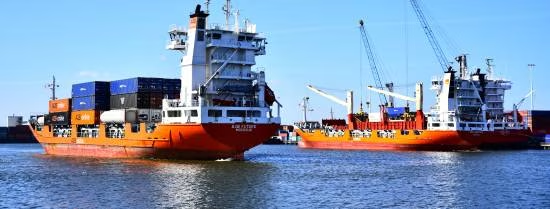The Central Bureau of Statistics (CBS) and Erasmus Center for Urban, Port and Transport Economics (Erasmus UPT) have been commissioned by the Ministry of Infrastructure and Water Management, the Knowledge Institute for Mobility Policy and the Sector Organization for Seaports to investigate the economic impact of the port areas. The report that has now been published builds on existing information and studies such as the port-, maritime monitor and the Rotterdam Effect study. It expands on what has not been researched before, provides better insight where more specific source data are available and corrects for double counting where necessary.
In and because of the ports, money is thus earned (added value) and employment created through various activities. Activities in the ports themselves, with the transport of goods to/from the ports or with outgoing trade flows through the ports. The following table summarizes the results.

The role of seaports in facilitating the export of Dutch products is quantified for the first time
The seaports are an important gateway to the world for goods of Dutch origin. Earnings and employment related to the production of goods exported via the seaports amounted to 47 billion euros and 392 thousand jobs (expressed in full-time working years, FTE). This concerns earnings that are earned from the export via the ports of goods produced in the Netherlands. Some of those earnings have already been included in the location function (for example, producers in the port) and the hub function (for example, transporters). To avoid double counting, we therefore remove these parts from the figures when we publish the three functions side by side. The total earnings via the ports are respectively 38 percent and 37 percent of the total earnings and employment related to the export of Dutch product. It is respectively 6 percent and 5 percent of GDP and total Dutch employment.
Context
At the end of 2021, three other studies were published that looked at the various elements that reflect the economic impact of seaports in our country: the port monitor, the maritime monitor and the inland port monitor. These each cover a part of the playing field when determining the economic significance of the port areas. In addition, the study by Kuipers et al. (2018) estimates the activities related to the port of Rotterdam that are usually not included in the determination of the economic effect in the above-mentioned monitors, such as seaport-related re-exports and important segments of maritime business. services. This study builds on these previously published studies.
Would you like to know more?
For more information about the research, please contact the CBS press service for organizational questions. For questions about the content, please contact Oscar Lemmers (CBS) or Martijn Streng (Erasmus UPT).

